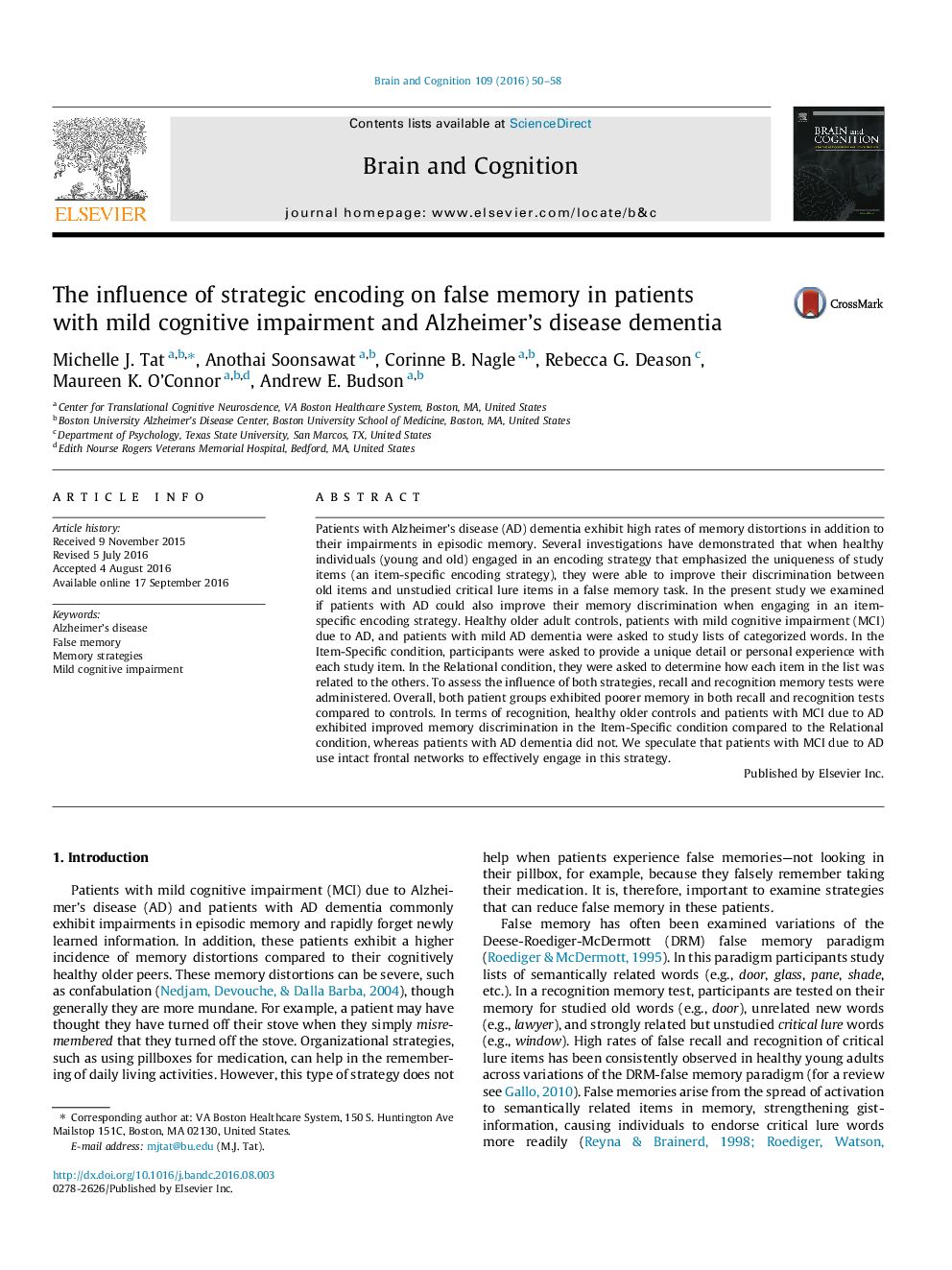| کد مقاله | کد نشریه | سال انتشار | مقاله انگلیسی | نسخه تمام متن |
|---|---|---|---|---|
| 5041165 | 1473962 | 2016 | 9 صفحه PDF | دانلود رایگان |
- The use of item-specific encoding strategy was examined in patients with Alzheimer's disease.
- An item-specific strategy improved memory in patients with mild cognitive impairment.
- Intact frontal lobe mechanisms may underlie patient's ability to use an item-specific strategy.
Patients with Alzheimer's disease (AD) dementia exhibit high rates of memory distortions in addition to their impairments in episodic memory. Several investigations have demonstrated that when healthy individuals (young and old) engaged in an encoding strategy that emphasized the uniqueness of study items (an item-specific encoding strategy), they were able to improve their discrimination between old items and unstudied critical lure items in a false memory task. In the present study we examined if patients with AD could also improve their memory discrimination when engaging in an item-specific encoding strategy. Healthy older adult controls, patients with mild cognitive impairment (MCI) due to AD, and patients with mild AD dementia were asked to study lists of categorized words. In the Item-Specific condition, participants were asked to provide a unique detail or personal experience with each study item. In the Relational condition, they were asked to determine how each item in the list was related to the others. To assess the influence of both strategies, recall and recognition memory tests were administered. Overall, both patient groups exhibited poorer memory in both recall and recognition tests compared to controls. In terms of recognition, healthy older controls and patients with MCI due to AD exhibited improved memory discrimination in the Item-Specific condition compared to the Relational condition, whereas patients with AD dementia did not. We speculate that patients with MCI due to AD use intact frontal networks to effectively engage in this strategy.
Journal: Brain and Cognition - Volume 109, November 2016, Pages 50-58
